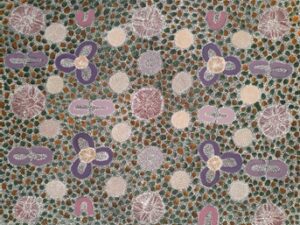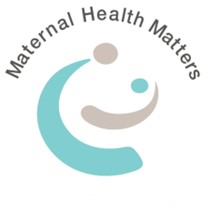GET UP, STAND UP, SHOW UP

Artwork: Women’s Business in the Garden by Hazel Morton
NAIDOC Week is an opportunity to acknowledge and celebrate the history, rich cultures, and achievements of our Aboriginal and Torres Strait Islander community. It provides an opportunity to continue to commit to systemic change, moving beyond acknowledgement, good intentions, empty words and promises, and hollow commitments.
As we reflect on the 2022 theme Get Up, Stand Up, Show Up, Maternal Health Matters notes the alignment of issues to Respectful Maternity Care (RMC).
Deep-seated resistance to addressing systemic disrespect for pregnant women in our health system is thwarting progress towards improving the health and wellbeing of all Australians. Unfortunately, there is still a huge gap between the maternity care a pregnant woman should receive and what she experiences. Current maternity care provides less than optimal care to the childbearing women of Australia by not protecting their basic human rights thereby creating economic & social inequities for women.
Women feeling disrespected during maternity care is an endemic phenomenon. The mistreatment is a longstanding and complex problem that is a form of sex-based discrimination and violence against childbearing women. The World Health Organization (WHO) notes that this is a worldwide issue of concern and recommends that clinical and psychological safety for pregnant women and mothers needs to be incorporated in the provision of care to increase women’s chances of receiving respectful maternity care and experiencing positive pregnancy and birth (WH0, 2018).
We know in Australia First Nations mothers and their babies are more likely to experience significant adverse outcomes including death during pregnancy and childbirth (AIHW 2022). Women want to be involved in their care, free to make decisions about their care including place of birth, who is with them during their pregnancy and childbirth and to be informed respectfully about their options and care outcomes.
Paradoxically Australia is one of the safer places to give birth in the world unless you are a First Nations woman – who are three times more likely to die in childbirth than other women across Australia. Compounding this First Nations infants are almost twice as likely to die in the first month of life with preterm birth the biggest cause of mortality. We note between 2006 – 2015 there was no significant decrease in still birth rates for first nations people. (AIHW)
However, a good birth should no longer be described as physically surviving rather care should be respectful, provided within a continuity of care approach preferably with a known midwife, with comprehensive postnatal care and finally information on all care options should be routine.
To close these life expectancy gaps Maternal Health Matters support:
- First Nations community engagement to promote midwifery as a viable career option as part of a process to ensure high quality culturally safe and respectful care is provided
- Cultural safety in all health services is essential, including contemporary education and practice from all health care providers
- Birthing on country is supported – noting the closures on many regional and remote building services forcing women to travel off country to birth
- Women being genuinely engaged in maternity care options including if they make decisions that are not in line with the health care providers advice.
